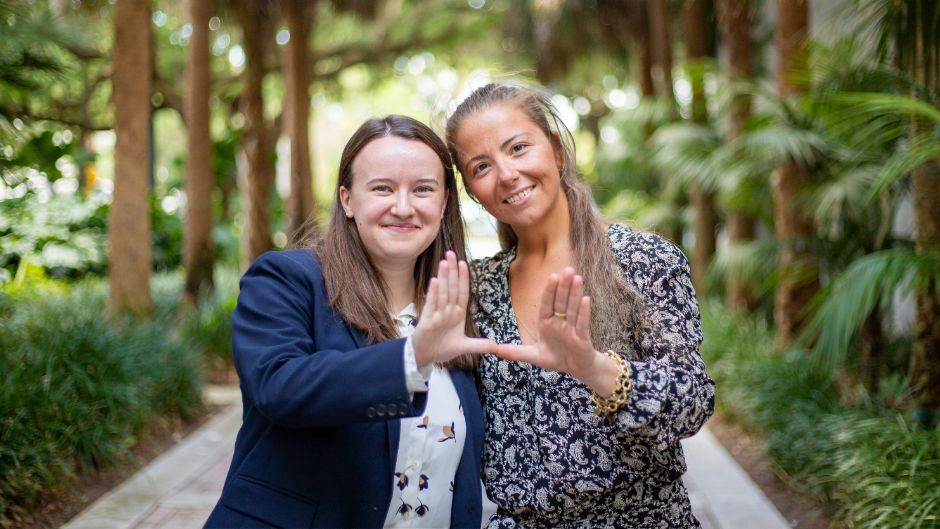The University of Miami School of Law distinguished itself as a finalist in the Environmental Law and Policy Hack Competition, hosted by the Elisabeth Haub School of Law at Pace University, for the third year. Professor Jessica Owley, faculty director for Miami Law's Environmental Law Program, coached the team.
The team consisted of first-year law students Madison Payer and Carly Costello, a joint degree student pursuing an M.P.S. in Marine Ecosystems and Society. In the competition, participants are challenged to tackle an environmental issue—this year's focus was on household waste—and propose effective solutions. The top three teams then present their proposals to a panel of expert judges through Zoom. This year, the Miami Law team achieved second place, maintaining a strong performance after winning the competition in the two preceding years.
"Madison received the initial email informing us that we had made it to the final rounds, and as a team of two (compared to our opponents, who had teams consisting of upward of eight people), we felt very proud of one another for the hard work we put into crafting a solution," said Costello. "I don't think either of us was expecting to make it to the final rounds, so we were shocked and beyond excited, especially for the opportunity to represent Miami Law."
Both students are passionate about environmental justice, and Payer, who was recently accepted into the Environmental Justice Clinic, has a particular interest in health law.
“The challenge of addressing the household waste crisis in Miami-Dade County—which is both an environmental problem and a health problem—was a perfect opportunity for us to explore tangible solutions to the injustices in our local community,” said Payer.
Their brief focused on household waste in Miami-Dade County, diving into Miami's history, current disposal problems, and how to encourage equitable and sustainable disposal practices.
"Miami-Dade County is unique in that it historically relied heavily on incineration for waste disposal, which releases air pollutants, heavy metals, and toxic chemicals that largely contribute to global warming, and currently relies on two landfills, which are equally harmful to human health and the health of the environment," said Payer. “For example, leachate is a concern, as it contaminates soil and water."
"The county relies on the North Dade and South Dade landfills, both of which are situated in underprivileged areas," said Costello. "The North Dade landfill is expected to reach capacity by 2026, and the South Dade landfill is expected to reach capacity by 2030."
To address these issues, Costello and Payer developed three solutions: an education-and-outreach program for high school students, the development of a food scraps drop-off program, and the adoption of a Pay-As-You-Throw program in municipalities that rely on Miami-Dade County for its waste service.
"Madison and I developed three solutions and hoped to orchestrate a community engagement meeting to discuss our proposals with the community and community leaders," said Costello. "It was important to us to ensure the marginalized residents had a voice in developing a solution."
Read more about Miami Law's Environmental Law Program.

